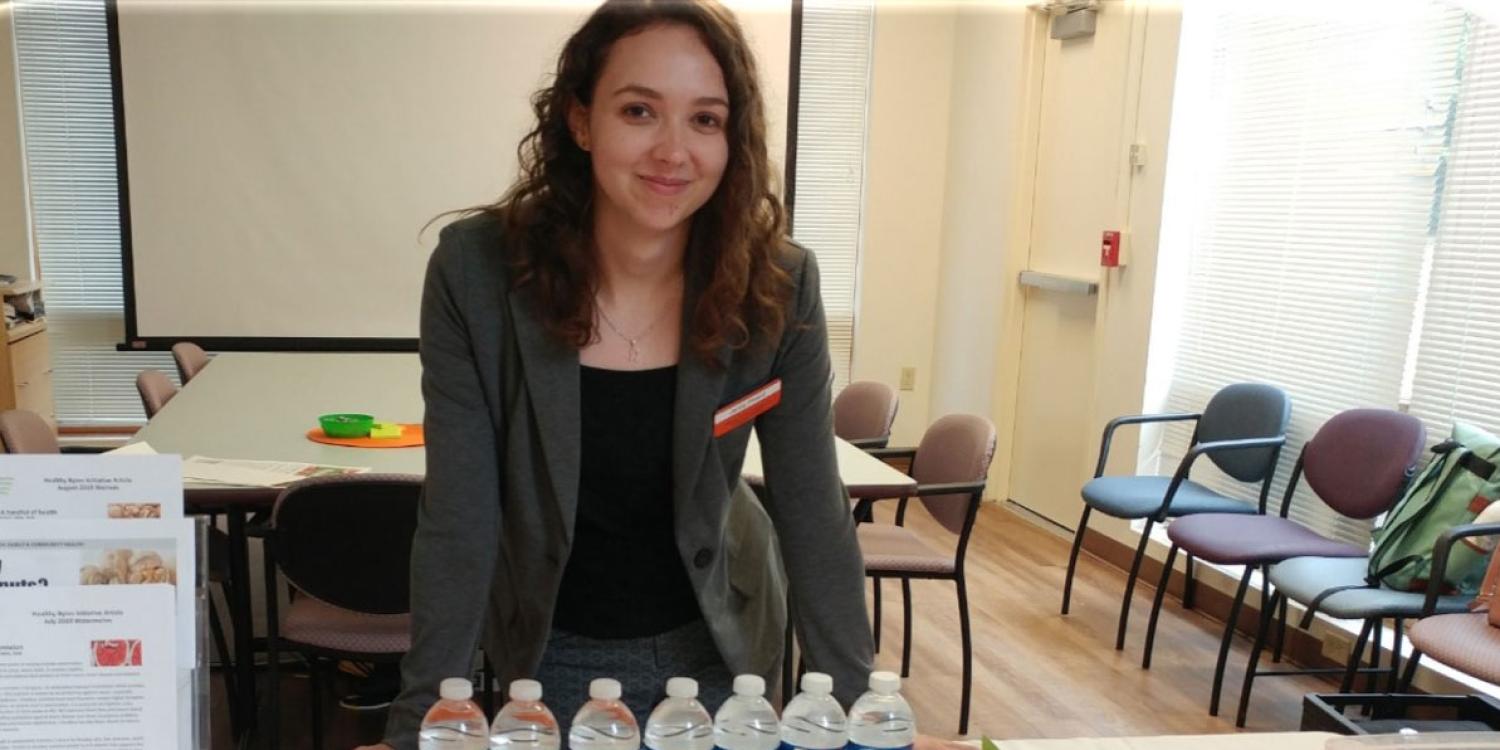
Cancer is the number one cause of death of Coos County residents, nearly double the Oregon rate. Studies demonstrate that eating fruits and vegetables could improve outcomes for cancer patients. However, less than 15% of Coos County residents consume the minimum of the recommended five fruits and vegetables per day. Coos County also lacks nutrition experts, with a dietitian employed at only one of the 10 health care sites in the county. This has meant that health care providers don’t screen for diet since they have no options for patient referrals.
In 2019, the Knight Cancer Institute at the Oregon Health and Science university awarded funding to the Oregon State University Extension Family and Community Health Program to conduct a study called WE CAN (Wellness Education for Cancer Nutrition). WE CAN is designed to increase the intake of fruits and vegetables by creating diet assessment tools, nutrition resources and referral options. Stephanie Polizzi, an associate professor of practice in the OSU Extension Family and Community Health Program and the College of Health, served as the study’s primary investigator.
The study was divided into two tiers. In Tier 1, which took place from February 2019 to February 2020:
- Medical professionals from all 10 health care sites across the county were surveyed to determine if, when and how nutrition was being included in patient care plans.
- Cancer survivors and caregivers were surveyed to determine the extent of their exposure to nutrition recommendations from their providers.
- Gaps were identified and follow-up surveys and focus groups were used to generate ideas for filling those gaps.
Feedback from all cohorts identified three potential interventions:
- A nutrition assessment tool focused on intake of fruits and vegetables.
- Written nutrition guidelines that emphasize eating plant-based foods.
- A resource brochure highlighting access to foods, education and online nutrition resources.
Tier 1 survey results showed that providers recognize the importance of nutrition assessment in patient care but lack expertise in this role. This demonstrates the need for health care facilities to hire registered dietitians and certified health coaches to meet patient needs.
In Tier 2, which covered February 2020 to February 2021, the study team researched validated tools that matched intervention strategies. They selected a nutrition assessment tool and adapted it to provide a risk indicator. The team created a one-page key for health care staff that provides referral options based on risk. They also created a three-page key for patients that provides simple tips to improve intake for each food category.
WE CAN created a 52-page Nutrition Resource Guide that includes local food banks/pantries, free- and reduced-price meal sites and Extension resources across Coos and neighboring Curry County. The guide also provides reputable websites, books and cookbooks addressing nutrition and diseases besides cancer, and online nutrition trainings for residents and health professionals. The team selected evidence-based written nutrition guidelines that could be easily printed and shared with patients. All interventions were piloted at the Bay Area Cancer Center in Coos County.
The study yielded several results, including:
- The Bay Area Cancer Center increased days for the dietitian to meet with cancer patients.
- OSU Extension hosted a Health Coach Certification Training in September and October of 2020 to grow local capacity for patient referrals. Six local agencies sent 30 employees to the training and graduates who completed the certification requirements are listed in the Nutrition Resource Guide.
- In addition to those used at the pilot site, 1,200 printed Nutrition Resource Guides were distributed to partners across Coos and Curry counties. Digital guides were shared with over 70 partners.
Although the interventions were piloted at a clinical site with cancer patients, the tools and resources created for the WE CAN study are useful for any health condition and include recommendations that individuals can apply to their lives.
They are relevant to participants in federal nutrition programs like SNAP (Supplemental Nutrition Assistance Program) and WIC (Special Supplemental Nutrition Program for Women, Infants, and Children). Also, they can be used by church groups, schools, support groups, weight-management programs or by individuals interested in improving their dietary intake.